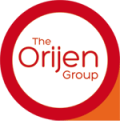Informal and formal mentoring are different in their approaches and outcomes.
In informal mentoring:
- The goals of the relationship are not specified
- The outcomes are not measured
- Access is limited and may be exclusive
- Mentors and mentees self-select on the basis of personal chemistry
- The relationship is open-ended and can continue for a life-time
- The organization benefits indirectly, as the focus is exclusively on the mentee
In formal mentoring:
- Goals are established from the beginning by the organization and the employee mentee
- Outcomes are measured
- Access is open to all who meet program criteria
- Mentors and mentees are paired based on compatibility
- Training and support in mentoring is provided
- Organization and employee both benefit directly
